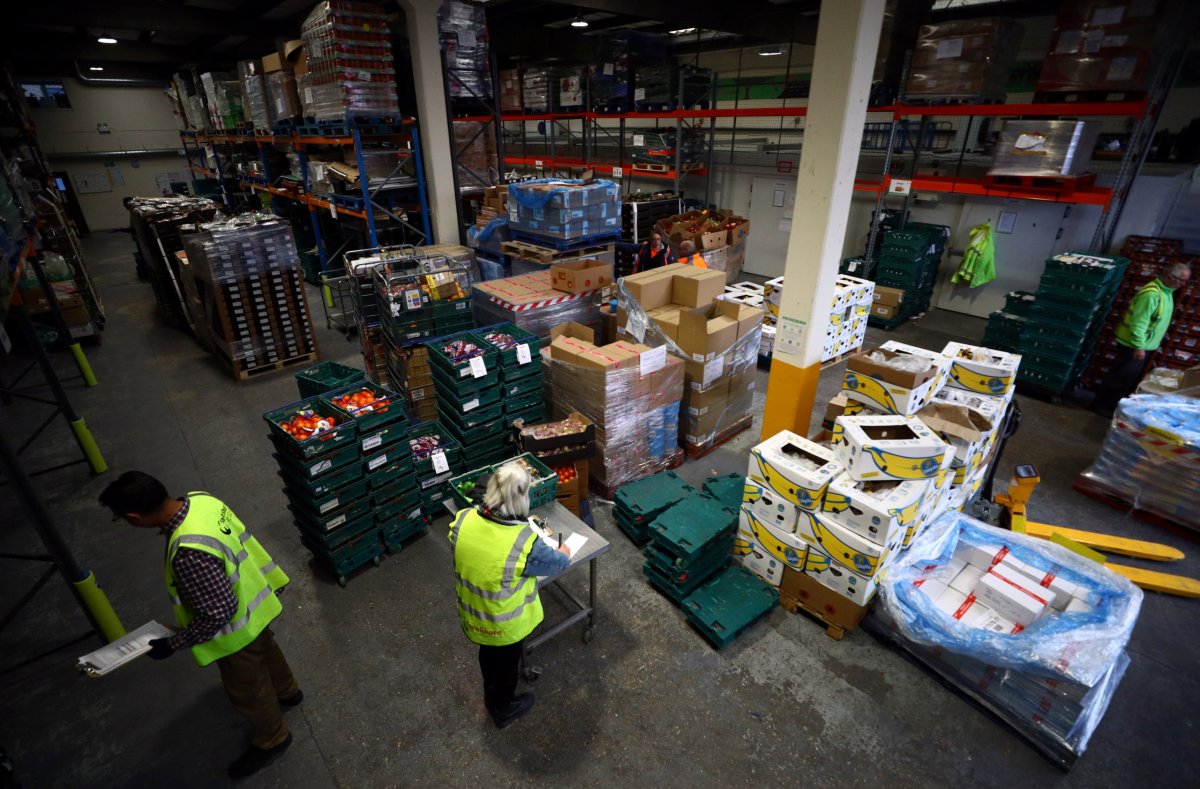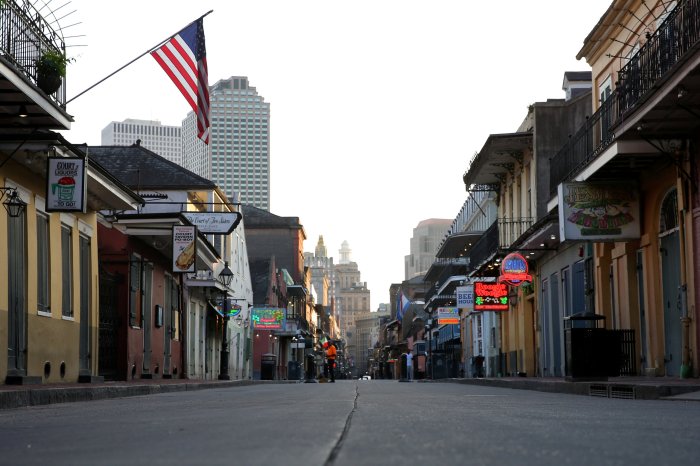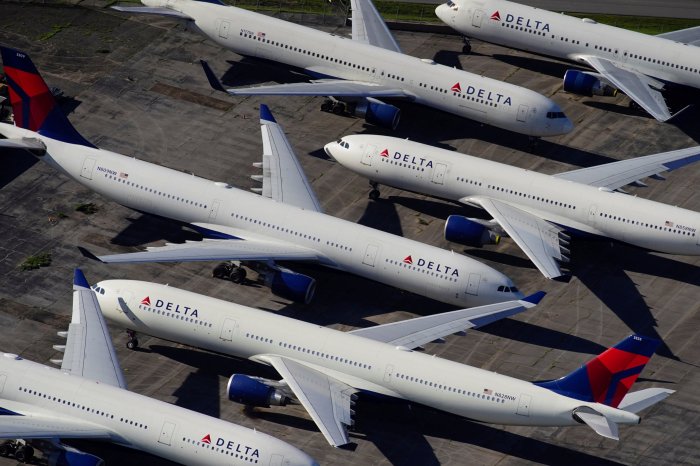LONDON (Reuters) – Before the parcel from the food bank arrived, Natasha Cartey had just half a bag of rice and a tub of butter. She was wondering when her next meal would be.
Cartey lives in social housing in Newham, one of London’s poorest boroughs, and receives government benefits. She is worried there will be riots if people are stuck at home for much longer.
“The country might end up coming to a standstill,” she said. “How are people meant to bring up their kids or survive or pay the bills or earn income?
“Protests and riots can and will get out of control,” she said, comparing the situation to the England riots of 2011.
Britain is in its second week of coronavirus lockdown, with strict social distancing measures in place. As shops and businesses close, millions of people have lost their income.
As the country faces its biggest crisis since World War Two, food banks which normally serve meals in their premises have closed so food distribution charities are left to deliver food parcels to people’s doors.
One in 20 people in the UK had already lost their job due to coronavirus when YouGov conducted a poll a week ago and applications for Universal Credit – the government benefits system – are sky high, with nearly half a million claims last week.
Suman Uththamaputhir used to work for betting shop Paddy Power before it closed.
“Really I’m struggling at the moment,” he said. “I’ve got a lot of family and friends … everyone’s doing the same thing, everyone’s struggling.”
Cartey and Uththamaputhir both received food parcels from the Docklands Settlements community centre in East London, which has been asked by the council to expand its operations to prepare for the influx of demand.
“I think that as time goes on there’s going to be a lot more people that are going to need a lot more food,” said Sam White, the community centre’s manager.
Use of food banks in Britain has surged in recent years. The amount of food distributed by the Trussell Trust, which runs around 1,200 of the country’s 2,000 food banks, has risen 73% in the past five years.
For many, the government’s financial aid will be too little, too late.
The country’s 5 million self-employed will not hear if they are eligible for money until June, and although the government has said it will fund 80% of employees’ wages if their company keeps them on, there is nothing to make an employer apply for this.
“As we’re going out and we’re delivering the food you can feel the desperation with some families,” White said.
“And things are only going to get worse as time goes on,” she added.
(Reporting by Natalie Thomas; writing and additional reporting by Elizabeth Howcroft; editing by Stephen Addison)

























